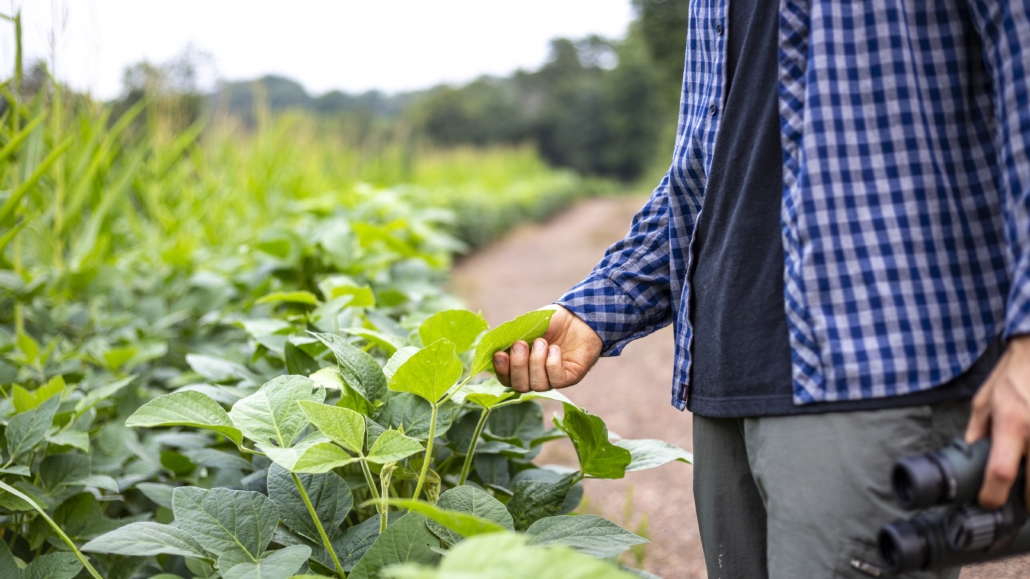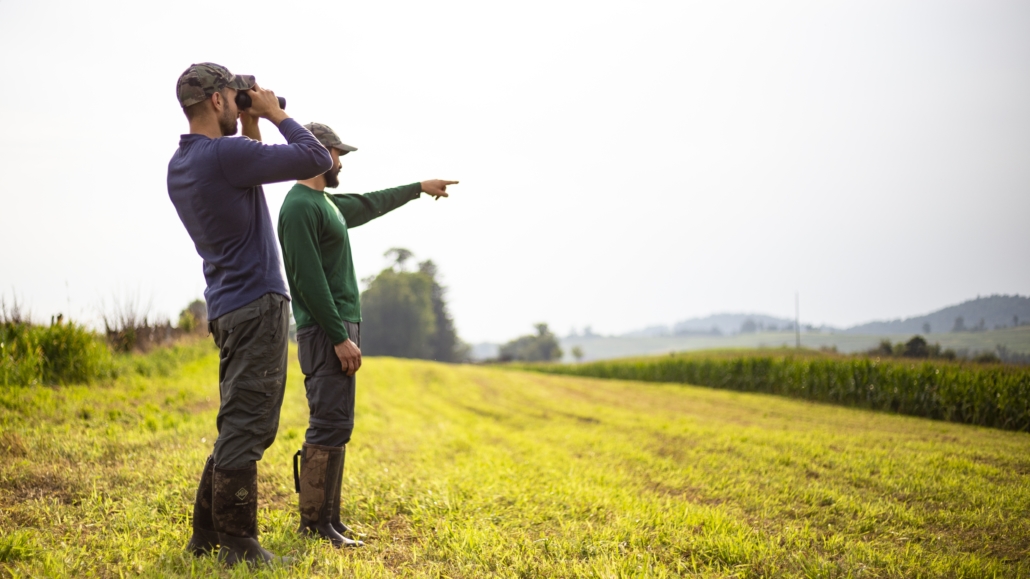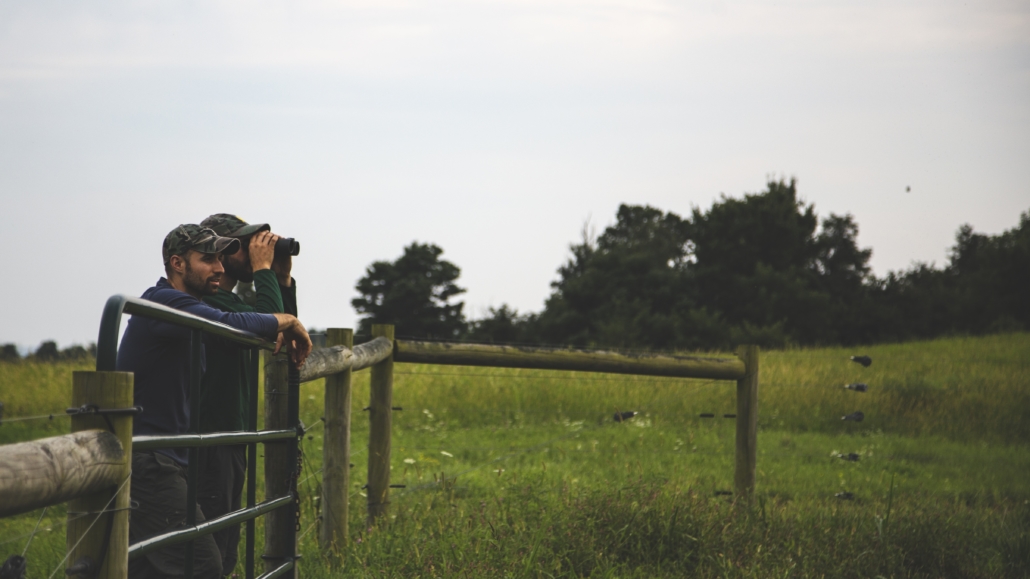Whether you are a hunter looking for a hunting lease or a landowner thinking about leasing your land for hunting, there’s absolutely one thing you can’t stop thinking about: hunting lease prices. There’s just no way to avoid it. As a hunter, you almost certainly have some kind of hunting budget that you can’t exceed without jeopardizing your family’s financial well-being. And as a landowner, knowing how much to charge for a hunting lease is critical to make sure you earn as much as is fair to get. So no matter which side of the exchange you are on, here are some key factors you should keep in mind that influence hunting lease prices across the country.
Lease Location Matters
Hunter:
One of the first things a hunter searches for when looking for a hunting lease is where the lease is located. After all, having a property a short drive from home will make it easier to hunt more frequently. However, a higher price tag usually comes with a convenient location. Within an hour of a major city, don’t be surprised to find much higher land lease rates than in more remote areas. There are simply more people willing to pay for that opportunity, and so you need to be prepared for that.
If a hunting property is several hours from home, it had better be worth the drive. In these situations, the location matters in a different way. As a Wisconsin example, a hunter is much more likely to drive further for a Buffalo County deer hunting lease than Wisconsin hunting land for lease in the northeast corner of the state. Why? Check out the trophy potential and habitat condition sections below.
Landowner:
As a landowner, there’s not much you can do to improve on your location. It is where it is and there’s nothing that can change that. But marketing it the right way can help increase its appeal. If your hunting land for lease is in a great location, make sure you list out the benefits in your property description. But if it’s not in a great or convenient location, try selling other attributes. Some people are seeking out a remote hunting property. Or maybe the size and condition of the property are worth the extra distance. Spell it out for interested lessees to justify your hunting lease prices.
Hunting Lease Size
Hunter:
Bigger is always better, right? It would seem so at first glance. We all want giant properties to hunt on, but given all the other factors, what is the most that you can spend? One way to think about it is whether you’d want to hunt 300 acres of marginal quality land or 40 acres of really high quality land. They may well equal a similar price. So as you are searching through properties and comparing hunting lease prices, remember the maximum you can spend and use the price per acre to decide what size property you can afford.
Landowner:
Depending on where your property is located, the average hunting lease price per acre will fluctuate widely. Some high quality areas may lease smaller properties out for a relatively high price per acre (e.g., 80 acres at $30-40/acre), while lower quality areas may lease larger properties for less (e.g., 1,000 acres at $5-10/acre). Use a few comparable lease listings in your area to decide what your price per acre should be, and then decide if the ultimate price tag for your land is worth it for you.
Land Use/Habitat Conditions
Hunter:
This category all comes down to what wild game species you would be interested in hunting. For example, if you want to hunt waterfowl, your ideal property would consist of rice farms, ponds, sloughs, and other water features. But if you’re mostly interested in big bucks, a mixture of farmland, natural meadows, swamps, and timber would be perfect. But again, the better the habitat conditions, the higher the price per acre (assuming you’re in the same general location).
Landowner:
As the landowner, there’s a lot you can do to influence this category. If you want to earn the highest hunting lease prices possible, take a hard look at your property and see what you could improve. If there’s a lot of mature forest on it, consider some type of timber stand improvement for wildlife. Thinning or clearcutting a portion of it would create better habitat for deer, turkeys, grouse, and other species, while putting some extra money in your pocket from the cut, all while making the property more valuable to lessees. If you currently farm it, would you be willing to leave some areas with standing crops to provide a food source for wildlife? That’s always a bonus in the eyes of a lessee.
Proof of Wildlife Potential
Hunter:
If you’re going to be paying for a deer hunting lease, you probably wouldn’t mind seeing some trophy bucks once in a while. In certain states (e.g., Illinois, Iowa, Ohio, etc.), that’s almost an expectation for a lease. If that’s important to you, study the Pope and Young or Boone and Crockett records to pinpoint which states and counties historically produce the most or largest bucks. Bear in mind that hunting lease prices in these counties will likely be significantly higher for relatively small properties, but you really have to pay to play in these areas.
Landowner:
It always helps to offer proof of something before selling, and that’s especially true when marketing a place as a trophy buck property. In your listing, be sure to include recent trail camera pictures, harvest pictures, and shed pictures to show the true potential of the deer on your property.
Hunting Lease Amenities
Hunter:
While this category really depends on personal preferences, having a place to stay when you visit a hunting lease is a nice bonus. And if you live far from the property location, it’s almost essential. Consider how important this is when you’re looking at the lease’s location.
Landowner:
If you already have an old cabin, trailer, or camper on your property that you don’t use, consider selling access to it as part of the lease. It can be tricky sometimes to know what to include in a hunting lease, but a base camp is almost always a good selling point. If there’s also electricity, water, and good access to it, all the better.
Freedom to Make Changes
Hunter:
It’s occasionally easy for lessees to forget they don’t own the property. It can feel like home once you get familiar with the lay of the land and spend a few seasons hunting on it. But you’re merely renting it from the owner, and need to be respectful of their wishes. That being said, if one of your goals for a lease is to plant food plots, cut shooting lanes, or otherwise change the property, you need to look for a landowner that is agreeable to it.

Landowner:
If you’re willing to let lessees make a few structured changes to the land, per the hunting lease agreement, you can usually fetch higher hunting lease prices. For example, would you let them plant food plots in certain areas, clear some trees, or install permanent tower blinds? Hunters will usually pay more for a little more freedom.
Realistic Lease Prices
As you browse properties, start asking yourself, “What’s a fair price for leasing land?” The answer is different for every landowner and hunter. Depending on what you value in a hunting lease or on your own property, the price will change.
GET INFO ABOUT LEASING YOUR PROPERTY
[/av_textblock]
[av_button_big label=’GET INFO ABOUT LEASING HUNTING RIGHTS’ description_pos=’below’ link=’manually,https://huntingleases.basecampleasing.com/#form’ link_target=” icon_select=’no’ icon=’ue800′ font=’entypo-fontello’ custom_font=’#ffffff’ color=’theme-color-highlight’ custom_bg=’#444444′ color_hover=’theme-color’ custom_bg_hover=’#444444′ av_uid=’av-k6s890r7′ custom_class=” admin_preview_bg=”][/av_button_big]
[/av_one_full][av_one_full first min_height=” vertical_alignment=” space=” custom_margin=” margin=’0px’ link=” linktarget=” link_hover=” padding=’0px’ border=” border_color=” radius=’0px’ background=’bg_color’ background_color=” background_gradient_color1=” background_gradient_color2=” background_gradient_direction=’vertical’ src=” background_position=’top left’ background_repeat=’no-repeat’ animation=” mobile_breaking=” mobile_display=” av_uid=’av-2mhb5n’]
[av_sidebar widget_area=’SRM-CAPTCHA-FORM’ av_uid=’av-1ys9a3′]
[/av_one_full]



Looking for hunting leases
Have 500 acres for lease for hunting. Two ponds.
Look or 75 to 100 plus acres to lease in western Kentucky for hunting
Throwing around ideas for land inherited by siblings and myself., in central North Dakota. Been told it’s a hunter’s paradise by some of the duck/goose hunters. Large slough on land, along with other sloughs, and if siblings agree; open to leessees to plant plots .
Hi Cathy, feel free to give our office a call and we can set up for local agent to get you a quote of what you could possibly earn every year from renting out your land for hunting. There’s no obligation when getting a quote, so what’s the hurt! Hope to talk to you soon. (866) 309-1507
Looking for hunting land in coweta county